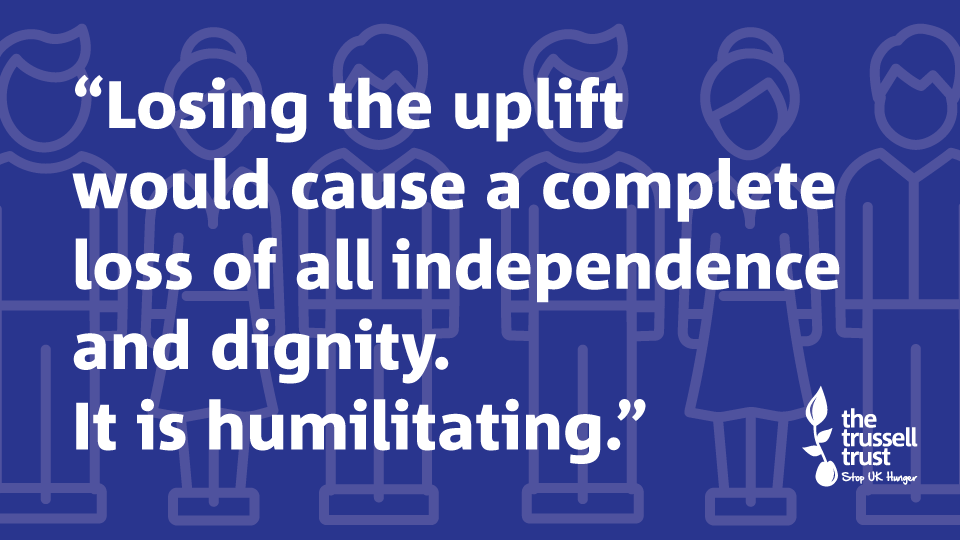By Emily Spoor, Research Officer
This week, new benefit statistics show the huge scale of the economic impact of the pandemic. Almost 6 million people are now receiving Universal Credit (UC), up from 2.7 million in January last year and 3 million at the start of the pandemic. This doubling means that around one in seven working-age adults in Great Britain are now receiving support from UC.
New figures also show that in November there were 4.9 million households receiving UC – an increase of more than 80% since the start of the pandemic. The majority of the increase, around 1.4 million of the 2.2 million additional households, are single people with no children. We know that this group is more likely to need support from food banks. Many will be younger adults whose employment has been disproportionately impacted by the lockdown – the unemployment rate for 16-24 year olds has increased by 3.1 percentage points in the last year, compared to just 1.3 percentage points for the overall population.[1]
However, the number of families with children receiving support from UC has still seen an increase of more than 50%, with more than 1.8 million now receiving UC.
During the pandemic, most of these households have been supported by an additional £20 a week to their benefits. By all accounts this uplift has been essential in preventing many people from experiencing poverty during the crisis – although policies like the benefit cap mean not everyone on UC has received the full uplift amount, and people receiving legacy benefits have been left out.
Our research showed that 72% of people receiving UC since early 2020 found the uplift made it easier for them to afford essentials than before. Cutting it would therefore put many at risk of having to go without the basics: 14% of people receiving UC thought it was very likely they’d need to use a food bank following the cut to UC, equating to more than a million people. This would clearly be unacceptable. The government must ensure that the social security provides people with enough income to be able to afford the essentials that we all need.
Further, we know that the economic impact of the pandemic has only just begun to be felt. Nearly a year into the pandemic in the UK the numbers of people on UC continue to climb – and with the furlough scheme rightly still in place to support jobs, we can expect that many of the job losses that result from the pandemic are still to come. In November, the OBR forecasts that unemployment will peak in mid-2021 and only return to pre-pandemic levels in around 4 years’ time.[2]
This context makes clear that the uplift must be maintained in the long term – and extended to people on legacy benefits who have missed out on the uplift. Some have suggested a short, six-month extension to the uplift, but this would mean cutting UC as unemployment peaks and forcing many more to make it through this economic crisis unable to reliably afford to eat, heat their home and pay their rent.
The uplift has been a huge relief for millions of people since April – it must stay in place to support them and the many more who are likely to need our safety net in the coming year.
[1] Office of National Statistics, Employment in the UK: February 2021
[2] Office for Budget Responsibility, Economic and fiscal outlook – November 2020



